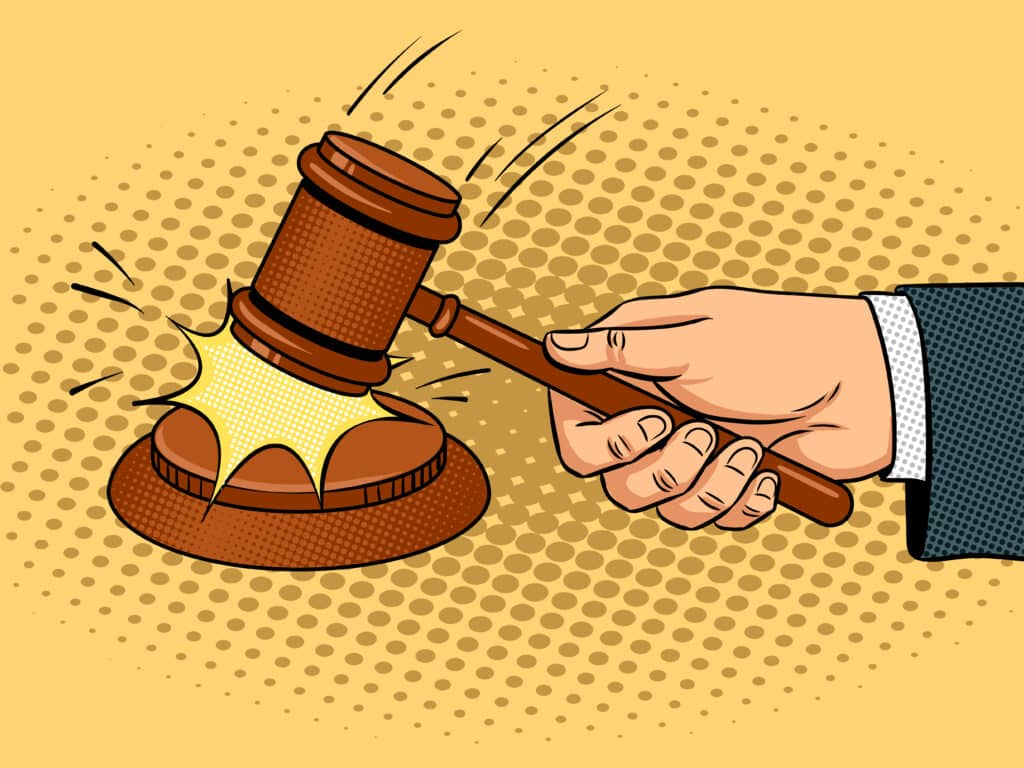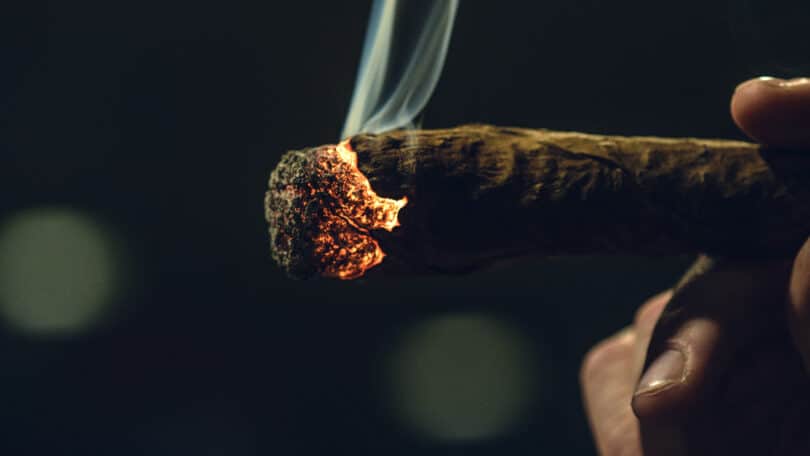I’ve moved around the states quite a bit over the last decade, and being a person that’s relatively active on social media, I’m a member of many neighborhood groups on Facebook and other platforms. One thing I’ve noticed in every group I’m in, more so in those pertaining to legal states, is that every couple of months or so, someone will complain about a neighbor smoking weed.
The problem is the smell of cannabis escaping the smoker’s home or property and entering the surrounding homes. While the general feedback is that people have a right do whatever they want in their homes so long as it’s legal, there are a fair number of people who agree with the poster about how bothersome pot smoke is to them.
As weed becomes more legal and widespread throughout the United States, this becoming a growing issue that’s pitting cannabis users against their neighbors. But what exactly are the laws here? Is it different for homeowners versus renters? And what about the rights of medical users who will fear repercussions for using their prescribed medication in the comfort of their own homes?
Man in legal state ordered to stop using medical cannabis in his home
After an almost three-year legal battle, last week a judge in Washington D.C., ruled that a resident can no longer use medical cannabis in his home, after a neighbor complained that it was negatively impacting her life and wellbeing. The official ruling from Judge Ebony Scott was that 73-year-old Thomas Cackett (and any guests at his home), could no longer smoke in his apartment or within 25 feet of his neighbor’s residence, Josefa Ippolito-Shepherd.
Shepherd filed the lawsuit, which named both Cackett and property owner Angella Farserotu, in November 2020; and not only did she want Cackett to stop smoking altogether, but she was also seeking damages for “negligence, nuisance and trespassing to recover for the loss of use and enjoyment of a significant part of her property, and for the discomfort and annoyance in being forced to subject herself and her guests to a toxic and controlled substance on a regular basis in her own home.”
So, she wanted Cackett to stop smoking AND she wanted money from Farserotu. Shepherd’s lawsuit also stated that the marijuana smoke caused her to experience “sleeplessness, stomach pains, nausea, and vomiting,” and that the “landlord has known about the intoxicating fumes since July 26, 2019, but has not done anything to mitigate the issue.”
Shepherd claimed that Cackett smoked all day and night, but that was proven to be false as he spent most of his day at his job as a restaurant owner. Cackett testified that he smoked about 2-3 minutes per day, taking a dozen or less puffs after he got home from work to ease his back pain and help him sleep. He also mentioned that he smoked outside on the patio as to not break the no-smoking clause in his lease, but because he is a medical patient, his landlord would “allow him to smoke indoors during inclement weather”.
Now keep in mind, this is a 73-year-old man that we’re talking about. But regardless, the judge ruled in favor of Ippolito-Shepherd. She (thankfully) was not awarded any damages sought, but Scott ruled that despite Cackett having a license to buy and consume medical cannabis, “he does not possess a license to disrupt the full use and enjoyment of one’s land, nor does his license usurp this long-established right.”
What kind of precedent does this set?

It’s hard to say what this means for the future. On one hand, it is possible that we’ll see more of these lawsuits in the coming months, seeing as how this was a victory (albeit probably an expensive one) for the plaintiff. One the other hand, cannabis is likely to be federally legal in the next couple of years, so what will happen then?
Again, even if it is legal, it can still be regulated as a nuisance, like cigarette smoke, in condos, apartments, extended stay hotels, and neighborhoods with homeowners associations. That’s essentially what the issue was in the Shepherd/Cackett case. Let’s go over some important details from this lawsuit once more:
- Washington D.C. has had legal cannabis since 2014, and medical since 2010.
- Cackett was a medical patient who worked all day and smoked a little bit of weed at night, after work, to ease his pain and help him sleep.
- Cackett was a senior citizen, 73 years old.
- Weed smoke dissipates in 3-5 hours in enclosed spaces, even faster in open areas.
- Cackett went above and beyond what most cannabis users do, and got permission from his landlord to smoke on the premises. The landlord was also sued.
All that said, if a working man in his 70s who is smoking medical marijuana for a few minutes in his home, can get sued and lose, it’s hard to imagine anyone else winning a similar lawsuit. But since these are handled on a case-by-case basis, there are no set standards in dealing with these situations, and different judges dish out different sentences for comparable crimes all the time, it’s nearly impossible to say what would happen if to someone in a different area, or even a different district, under equivalent circumstances.
Is it different for homeowners?
While it seems like the most obvious answer in this situation is “yes”, if you own the property rather than renting, and you live in an adult-use or medical state, you should be able to smoke and no one can really do anything about it, it’s a bit more complicated than that. The aforementioned injunction was brought against both the resident AND the landlord, who is the legal property owner, so what does that mean for future homeowners who may clash with their neighbors about pot smell?
Because this is mostly uncharted territory, it’s hard to find any laws that specify what the exact rights of are for homeowners in these situations. However, I did find some outlines from the Condominium Owner’s Association (“COA”) and various homeowners associations (HOAs) about how these cases are often handled.
For example, the COA’s governing documents, which include bylaws, covenants, conditions, restrictions, and general rules and regulations, may vary from property to property. However, many do have provisions that ban all smoking in units and/or common areas. Other language in these documents that could be used against cannabis smokers are rules that prohibit condo owners from “creating nuisances”.
Similar restrictions apply in many Homeowners Associations too, and many are banning weed smoking in their neighborhoods. However, some HOAs are going in a different direction and changing their rules to accommodate for medical and legal cannabis use. There are also some different considerations when it comes to smoking in a house, versus an apartment or condo – mainly, that you have a lot more privacy. If each home has a relatively large lot, people will likely not even notice a few pot smokers in the neighborhood.

But at the end of the day, because cannabis is a federally prohibited drug, HOAs do have the right to regulate its use if the neighbors can smell it, or even if they so much as see a person smoking and complain that it’s disturbing them in some way. “The fact that people may be legally entitled to smoke doesn’t mean they can do it wherever they want, any more than they could walk into a restaurant and light up a cigarette,” said Richard Thompson, who owns a management consulting company that specializes in condominium and homeowner associations.
Medical Cannabis and the Fair Housing Act
One question that remains up for debate, is how the Fair Housing Act (FHA) comes into play regarding medical patients’ right to smoke in their homes. The FHA is a federal law that prohibits housing discrimination based on seven protected classes: race, religion, national origin, color, familial status, sex, and disability.
If a medical cannabis patient has a disability, COAs and HOAs may be required to make certain accommodations for them. For example, even in housing units where pets are not permitted, most landlords are required to allow them if they are registered companion or assistance pets.
Theoretically, a good lawyer could argue that if weed is used to treat a disability, then by barring a patient from smoking it, the COA or HOA is violating the Fair Housing Act. However, the general belief is that because the act of smoking to consume a medication is not a protected FHA characteristic, there is “no legal claim for an accommodation can be made in such a case”.
Final thoughts
While it’s understandable that someone who doesn’t smoke cannabis, also doesn’t want to smell it on a regular basis. They have a right to feel that way, but after a certain point, their feelings are infringing on the rights of their neighbors, who may now be banned from engaging in a legal, or possibly medicinal, activity in their own homes. Everyone, including cannabis users, have a right to feel safe and comfortable in their place of residence.
Hello readers. We’re happy to have you with us at Cannadelics.com; a news source here to bring you the best in independent reporting for the growing cannabis and hallucinogen fields. Join us frequently to stay on top of everything, and subscribe to our Cannadelics Weekly Newsletter, for updates straight to your email. Check out some awesome promos for cannabis buds, smoking devices and equipment like vapes, edibles, cannabinoid compounds, amanita mushroom products, and a whole bunch more. Let’s all get stoned together!









